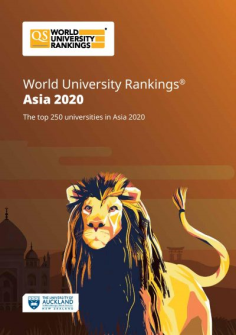 After March 20, countries across South and Southeast Asia announced the closure of their schools and universities for a minimum of two weeks in order to contain the spread of the COVID-19 virus which has been declared a global pandemic by the World Health Organization.
After March 20, countries across South and Southeast Asia announced the closure of their schools and universities for a minimum of two weeks in order to contain the spread of the COVID-19 virus which has been declared a global pandemic by the World Health Organization.
India on 16 March declared a countrywide lockdown of schools and universities. It also closed its borders to all non-Indian nationals after the outbreak was declared an epidemic in several of its most populous states. (The country’s first case was confirmed in a student who had returned from Wuhan University in China. Wuhan in Hubei province has been the epicentre of the outbreak. )Pakistan on 13 March closed all educational institutions until 5 April, with the education ministry saying it would decide on 27 March whether an extension would be necessary. In Bangladesh all education institutions were ordered shut on 17 March, to remain closed for two weeks.
Sri Lanka’s University Grants Commission also ordered all universities to close for two weeks after the country announced its first COVID-19 case on 11 March. Malaysia, the most affected country in Southeast Asia with over 790 cases and two deaths by 18 March, when it closed its borders to visitors, banned travel overseas for its citizens, restricted internal movement and closed schools, universities and many businesses, at the start of a two-week partial lockdown. Thailand on 17 March announced a two-week closure of all educational institutions until at least 31 March.
Similar announcements came from Indonesia – which announced its first two COVID-19 cases on 2 March. It had 227 cases by 18 March and the highest death rate from the virus in Southeast Asia at 19. The Philippines, which also announced university closures this week, has had almost 200 cases and 17 fatalities from the virus as of 18 March.
The unprecedented shutdowns have left many foreign students stranded within their borders, with severe disruption as in some countries students have been asked to vacate university accommodation amid uncertainty and panic as major exams and graduation ceremonies have been postponed.
Sri Lanka’s University Grants Commission has acknowledged that new admissions to universities could also be delayed due to the closures and public sector shutdowns as the government declared special holidays and has so far extended the new university registration deadline until 9 April.
This is the fourth occasion that all universities have been closed in Sri Lanka. In 2019, all universities and schools closed after the deadly blasts in churches and hotels that killed hundreds of people on Easter Sunday. The closure lasted a month.
In Afghanistan, amid a grim political crisis and raging insurgency, the ongoing winter holidays in schools, universities and other public and private academic institutions have been extended for one more month, until 21 April. The new academic year was originally supposed to begin on 22 March. As of Wednesday 18 March, some 22 positive cases of the coronavirus were confirmed in the country.
(Reported by
Dinesh De Alwis, Shadi Khan Saif and Shuriah Niazi University World News
Asia Editor Yojana Sharma wrote this report compiled from dispatches from UWN correspondents in the region.)
Posted on :
Apr 26, 2020